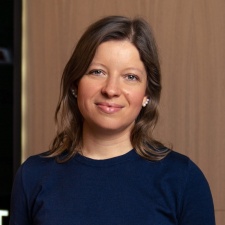As a casual games developer and publisher that made its start on the Game Boy Advance in 2002, Lithuanian studio Nordcurrent has long since moved into mobile development with hit games like Cooking Fever, Murder in the Alps and Pocket Styler: Fashion Stars. The trio of siblings who founded the company have recently celebrated its 20th anniversary.
We at PocketGamer.biz spoke with CEO and founder Victoria Trofimova about how the industry has changed since 2002, growing Nordcurrent as a family-owned games company, and supporting Ukrainian staff in turbulent times.
PocketGamer.biz: First of all, can you tell us about yourself, your role and your time in the industry? How has games development changed at Nordcurrent in the 20 years since the company first started?
Victoria Trofimova: Twenty years ago, when we had just founded the company, my first goal was to find a publisher for our first game Santa Claus Saves the Earth. Back then, it was just the three of us (Michail Trofimov, Sergej Trofimov, and Victoria Trofimova), and we developed games for Game Boy Advance.
We developed games for other publishers for many years until we gained enough expertise to be able to finally develop the games we wanted to make and publish them ourselves.
Right now, there are more than 250 people across our studios, and we work on many games simultaneously, which we both develop and publish for smartphones. And we also have a growing publishing division that specialises in publishing games made by independent developers for PC and consoles.
Did you see the above-mentioned change coming? Being a family-owned games business, how has Nordcurrent kept itself relevant in the age of corporate giants?
The gaming industry always changes, with big shifts happening about every five to seven years – from physical goods at the retail to digital downloads, from premium business models to free-to-play, from consoles to mobile, etc. This makes it so fresh and thrilling and keeps you on your toes all the time.
Our focus is and always has been on creating fun, high-quality games, and I think that’s what is keeping us relevant. Many app/game developers have moved away from in-app purchases in favour of subscription models.
How do you feel about the current state of monetisation in the industry?
It is always very hard to anticipate what is going to happen next, and, from my experience, what everyone expects to be the next big thing, usually does not happen. Or it happens later and in a different form. Remember when everyone thought that games for old mobile phones (Nokia, etc.) would be the next big thing, but it did not materialise until the introduction of smartphones many years later.
Subscription, I think, is a good model if you have a lot of gaming content (Microsoft, Sony, etc.). But I am having a hard time imagining mid-sized gaming companies successfully competing with gaming giants for subscribers.
Nordcurrent has two studios in Ukraine; how have you helped employees affected by the ongoing invasion of Ukraine, and how has this affected game development?
We offered all our Ukrainian employees an option to relocate to a newly opened office in Warsaw, Poland. We have helped all our employees and their family members who wanted to do so. For those who do not want to move, we continue operating studios in Ukraine and developing games there.
Where do you think the mobile gaming industry is headed in the next few years?
The years of rapid growth in the mobile gaming industry are over. It is a mature market where it is getting harder for young developers to achieve success. It takes big budgets to launch a game. However, saying that, I think it is an industry that will continue to do really well, like games for consoles, for example.
This summer, Nordcurrent announced that it grew by 20 per cent in 2021 and expects to grow further in 2022, with anticipated revenues of €110 million.





















